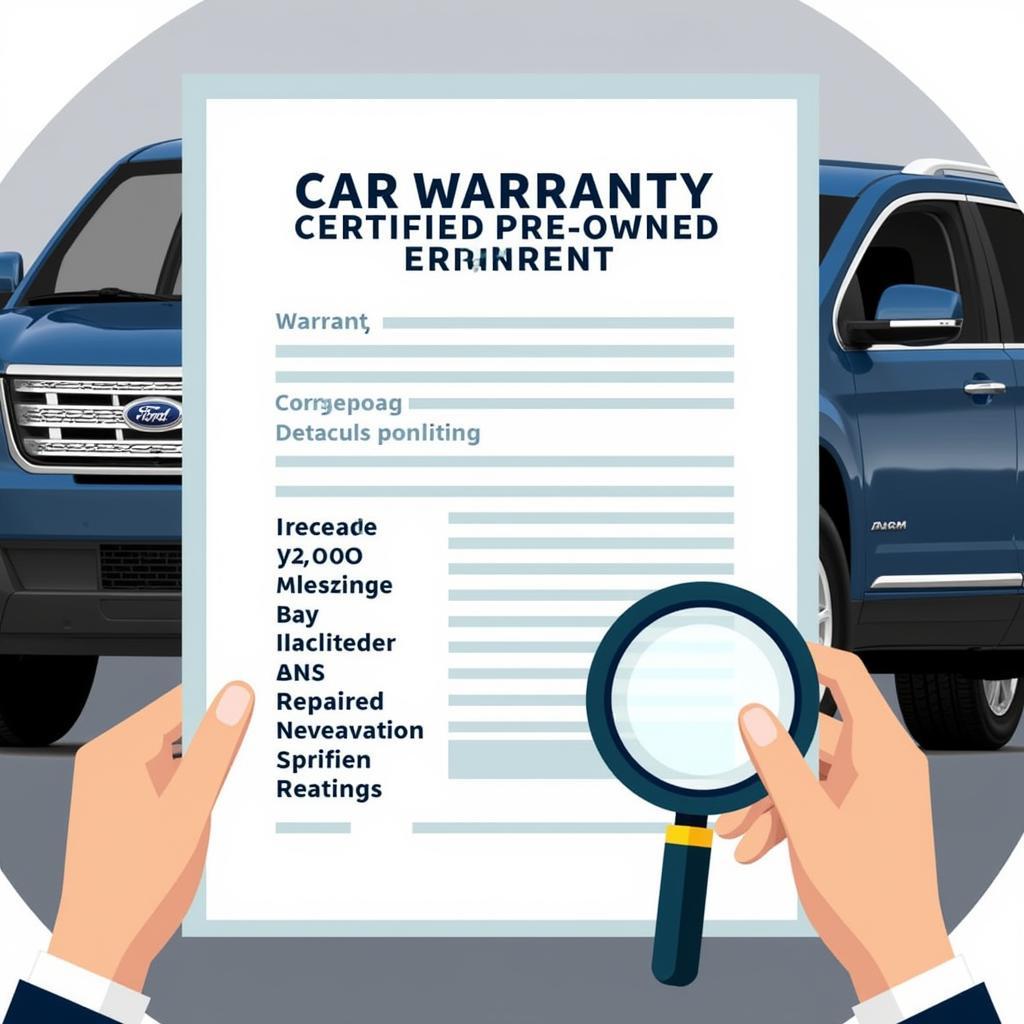Buying a certified used car offers a compelling blend of affordability and peace of mind. It’s a significant investment, and understanding the process can save you time, money, and potential headaches. This guide dives deep into the world of certified used cars, equipping you with the knowledge to navigate the market confidently and drive away in a vehicle you can trust.
What are Certified Used Cars?
Certified pre-owned (CPO) vehicles represent a step up from regular used cars. They undergo rigorous inspections and come with extended warranties, offering a greater sense of security. But what does “certified” actually mean? It signifies that the car has met specific standards set by the manufacturer or an independent body, covering everything from mileage and age to the condition of its components.
Benefits of Buying Certified Used Cars
Choosing a certified used car offers several advantages. Firstly, you’re getting a vehicle that’s been thoroughly vetted. This reduces the risk of unexpected repairs and gives you confidence in its reliability. Secondly, the extended warranty provides additional protection against future mechanical issues. Thirdly, certified used cars often come with perks like roadside assistance and special financing options. These benefits combine to provide a more secure and satisfying car-buying experience.
Peace of Mind with Warranty Coverage
One of the biggest draws of certified used cars is the extended warranty. This coverage offers protection beyond the original factory warranty, safeguarding you against costly repairs down the line. The specifics of the warranty will vary depending on the manufacturer and the particular program, so it’s essential to understand the terms and conditions before making a purchase.
 Certified Used Car Warranty Coverage Explained
Certified Used Car Warranty Coverage Explained
Rigorous Inspection Process
Before a car can be certified, it must pass a comprehensive inspection. This process typically involves a multi-point check covering critical components like the engine, transmission, brakes, and electrical systems. A thorough inspection helps ensure that the vehicle is in excellent mechanical condition and meets the manufacturer’s stringent standards.
Added Perks and Benefits
Beyond the warranty and inspection, certified used cars often come with additional perks. These might include roadside assistance, trip interruption reimbursement, and special financing rates. These extras can add significant value and further enhance the ownership experience.
How to Find the Right Certified Used Car
Finding the perfect certified used car requires careful research and consideration. Start by identifying your needs and budget. Consider factors like size, fuel efficiency, and desired features. Then, research different makes and models that fit your criteria. Once you’ve narrowed down your choices, visit dealerships or browse online listings to compare prices and available options.
Setting Your Budget and Needs
Before you start shopping, it’s crucial to establish a realistic budget. Determine how much you can comfortably afford to spend, considering not just the purchase price but also ongoing costs like insurance, fuel, and maintenance. Also, think about your specific needs and preferences. Do you need a spacious SUV for a growing family, or a fuel-efficient compact car for city driving?
Researching Makes and Models
Once you have a budget and a list of needs, you can start researching specific makes and models. Look for vehicles known for their reliability and safety. Read reviews and compare features to find the best fit for your lifestyle and preferences.
Comparing Prices and Options
When comparing prices, remember to factor in the value of the certification and extended warranty. A certified used car might have a slightly higher upfront cost than a non-certified vehicle, but the added peace of mind and potential savings on repairs can make it a worthwhile investment.
Certified Used Cars vs. New Cars
The decision between a certified used car and a new car often comes down to budget and priorities. New cars offer the latest technology and features, but they also come with a higher price tag and faster depreciation. Certified used cars provide a more affordable option while still offering a level of quality and reliability that’s often comparable to a new vehicle. Consider your individual circumstances and make the choice that best aligns with your needs and financial situation.
“Choosing a certified pre-owned vehicle allows buyers to access higher-trim models and advanced features often out of reach when buying new,” says John Smith, Senior Automotive Analyst at Auto Insights Inc. “It’s a smart way to maximize your budget without sacrificing quality.”
Conclusion
Purchasing a certified used car is a smart way to get behind the wheel of a reliable vehicle without breaking the bank. By understanding the certification process, researching your options, and comparing prices, you can make an informed decision and enjoy the benefits of a quality used car. Remember to always inspect the vehicle thoroughly and review the warranty details before finalizing your purchase. Now, armed with this knowledge, you’re ready to embark on your journey to find the perfect certified used car.
FAQ
- What is the difference between a certified used car and a regular used car?
- How long does the certification warranty typically last?
- What is included in the certification inspection process?
- Are there any financing options specifically for certified used cars?
- Where can I find certified used cars for sale?
- Can I negotiate the price of a certified used car?
- What are the benefits of buying a certified used car over a new car?
“The used car market is evolving, and certified pre-owned programs provide consumers with a valuable layer of protection and confidence,” adds Jane Doe, Automotive Consultant at Car Buying Strategies.
Need more assistance? Contact us via WhatsApp: +1(641)206-8880, Email: cardiagtechworkshop@gmail.com or visit us at 276 Reock St, City of Orange, NJ 07050, United States. We have a 24/7 customer service team. For more information about car diagnostic tools, visit DiagXcar. We also have articles on related topics such as extended warranties and financing options.


